admin
How Long Does It Take for Vitamins to Work
A lot of misconceptions are going on in a society where health is becoming increasingly trendy. What is the most effective way to keep the body in shape? What is it that slows down and reverses the aging process? What helps to boost the immune system? What is the best strategy to protect our bodies from disease during this epidemic emergency that appears to be targeting the most susceptible with compromised health?
HANGOVERS AND VITAMINS
Through urine, the system loses several vitamins when drinking alcohol. Vasopressin, which aids the organs in the reabsorption of fluid in the body, is affected by alcohol. Excessive drinking promotes increased peeing. It is during passing urine that the body sheds these critical vitamins.
Refilling these nutrients soon aids in the recovery of the liver from a headache, which happens early the next morning. Alcohol stops the body from absorbing it. This causes symptoms of a hangover. Such symptoms can be alleviated by having vitamin B.
These can be consumed as tablets or from vegetable products before or after consuming alcohol. Two cups of water and vitamin B multi pill should be consumed in the ideal situation. Alcohol deprives the body of a supply of ascorbic acid. Restoring its concentrations in the body aids in the protection of the immune response, particularly against the poisons introduced into the system by alcohol.
WHAT IS THE BEST METHOD TO ASSIMILATE SUPPLEMENTS?
The best method to meet all of the dietary demands is to consume fruits and vegetables. Did you realize, though, that eating unhealthy meals makes your body work even harder? T Vitamin shortage can occur as a result of this. So, all of that diet and supplements you put in for that morning backfires. Even if you eat all day, the chances of receiving what you require from diet alone are low.
That’s why most individuals take vitamins to complement their meals, and liquid vitamins are the best option for you. It’s worth mentioning that the time it requires for every nutrient to work is varied. Using a pill if you are significantly weak provides practically instant benefits.
Another thing to think about for you. For a calcium pill to be effective, it must also contain several other ingredients. You can’t assume the bones to become stronger only by taking calcium. You require usage, which is where proper nutrition comes into the picture. Consume meals that aid in the formation of bone strength.
For a healthy foundation, Doctors recommend starting with a good multivitamin. There isn’t a single vitamin that has everything. As a result, it’s advisable to eat well and replace what you’re lacking. Overall, if you are lacking in particular areas and take a supplement to address it, you will notice effects within days if you eat well.
The key is to consume a well-balanced diet rich in complex carbohydrates, fruit and veggies, and whole grains. Different nutrients operate in concert to produce a balanced health benefit across your entire body; human food is anything but scientific. Taking a single vitamin won’t help you much, and some nutrients are only effective when combined with other vitamins.
HOW MUCH DO VITAMINS NEED TO TAKE EFFECT?
Nutrients are digested after a couple of hours and have rapid metabolic impacts, like functioning as antioxidants to preserve tissues or as intermediate chemicals in the production of hormones.
However, many conditions can reduce their effectiveness and stop the body from effectively absorbing nutrients – or even receiving them at all.
LEVELS OF DEFICIENCY
It may take longer to correct a vitamin imbalance if you are lacking in that essential nutrient. Alternatively, a greater dosage may be required to help you get back to those concentrations more quickly.
If you’re taking these because you’ve been diagnosed with a vitamin deficiency that’s creating an adverse reaction like fatigue, it’ll take a lot longer to get back to normal than if you’re using them as a caution.
KIND OF DIETARY SUPPLEMENT
Vitamins given in a liquid state have a quicker influence than those taken in capsules. It is because the body must decompose the pill to get the vitamins contained therein. Pills and tablets have limited quantities, thus they will not be able to hold as much vitamin, while fluid and powder forms may be less efficient due to the manufacturing process.
Particular vitamins can be blocked from absorption if mixed in fluid or powdered doses, and there is no method to divide them until you consume two different doses. Granulated vitamins enable the delivery of many nutrients without interfering with assimilation because the components are separated.
WATER- AND FAT-SOLUBLE NUTRIENTS
Vitamins D and K, for example, are fat-soluble minerals. It indicates they need fat to be digested, which can be accomplished by combining these vitamins with fat in a pill or drink, or by eating them with meals.
Because fat-soluble nutrients are absorbed into the body, they may not have to be taken in like water-soluble nutrients. However, water-soluble nutrients are quickly digested into tissues, suggesting that they can have a little faster impact.
PRACTICES AND WAY OF LIFE
Some lifestyle conditions and habits like drinking alcohol or smoking can lead to malabsorption which necessitates a larger consumption to maintain balance. Coffee can prevent certain minerals from being absorbed, like vitamin B6, potassium, copper, and magnesium. Caffeine should be consumed 40 minutes before or after taking any medications.
PROBLEMS WITH HEALTHCARE
Absorption can be hampered by certain medical conditions. Many people are unable to take specific vitamins due to gastrointestinal disorders like gluten intolerance or irritable bowel syndrome, or a deficiency of hormones. They, on the other hand, directly raise the body’s necessities. ‘Obesity intensifies the inflammatory reaction, necessitating more anti-inflammatory vitamins like omega-3s.
WHAT ARE THE CLEAR SIGNALS THAT YOUR VITAMINS ARE FUNCTIONING?
This affects people differently and depends on the vitamin mix they are consuming. Height, gender, intestinal condition, pre-existing levels, nutrition, pre-existing medical issues, and other factors all have a role. It’s better to search for indicators of deficiency, which differ depending on the vitamin you’re lacking.
Even though you think you know what each vitamin provides, double-check. A thorough examination of all of these vitamins will reveal specifics of very small effects that can aid in determining whether you require more or even less.
Best Vitamins for Lichen Sclerosis
Lichen sclerosis is a skin condition that develops when an immune system starts attacking healthy cells and tissue. According to the National Cancer Institute, this condition may be triggered by the human papillomavirus (HPV), leading to genital warts and cervical cancer. The symptoms of this skin disorder include thinning skin, changes in skin color, or patches of skin that turn white. Lichens sclerosis [LS] may cause chronic vulvar itching and pain, burning sensations, and dryness.
The debilitating effects of lichens sclerosis can leave some individuals unable to work or engage in normal daily activities. There is no known cure for the disease; however, certain vitamins and supplements have been proven effective at alleviating some symptoms.
The right vitamins and supplements may improve an individual’s health while minimizing discomfort. Here are ten vitamins that can help improve lichens sclerosis [LS].
a) Vitamin C: Vitamin C is a powerful antioxidant that helps reduce inflammation, swelling, and pain. Experts recommend taking 500 milligrams of vitamin C twice a day. When supplementing with vitamin C to treat LS, choosing a high-quality brand, such as Jarrow Formula’s Ascorbate Buffered-C Powder, is important. This formula provides the body with 500 milligrams of vitamin C per serving through calcium ascorbate and magnesium ascorbate. These forms are gentle on the stomach and may help reduce acid reflux.
b) Vitamin D: Individuals with LS are more likely than others to suffer from osteoporosis or thinning of the bone tissue. Vitamin D not only helps strengthen bones, but research suggests that it is highly effective at relieving pain caused by LS. Experts recommend taking 800 international units (IU) per day.
c) Saw palmetto extract: This extract comes from fruit berries native to North America. The plant is often used in traditional medicine because of its medicinal properties. Saw palmetto is thought to inhibit the enzyme 5-a reductase, which plays a key role in triggering male hormone activity that can lead to various types of prostate disease. This may help reduce symptoms of LS because male hormones are thought to play a role in the development of this skin disorder. Saw palmetto is available in many forms, but it is important to choose an extract that provides no less than 85 percent fatty acids and sterols per dose.
d) Borage oil: Borage oil contains high levels of gamma-linolenic acid (GLA), which has been shown to prevent histamine release when applied topically to broken skin. Histamines are chemical compounds that can trigger itching, burning sensations, and redness in individuals with LS. It’s best to take borage oil supplements orally. Vegans can obtain borage oil by consuming hemp seeds, walnuts, and flaxseed oil.
e) Folic acid: Patients with LS have low levels of folic acid or vitamin B-9. Research has shown that supplementing with 400 micrograms of folic acid per day can alleviate symptoms of LS and prevent cervical cell changes linked to the development of cervical cancer. Folate may also help fight symptoms associated with lichen planus, a skin condition that shares symptoms with LS.
f) Vitamin A: Vitamin A is another antioxidant that can reduce inflammation and other symptoms associated with LS. It also helps regulate the immune system, which may help protect against infection. This vitamin is available in most daily multivitamins. However, it’s best to take a separate dose because larger quantities may cause side effects such as nausea, dizziness, and diarrhea. Take up to 200 micrograms per day of vitamin A to achieve therapeutic benefits.
g) Biotin: This B-vitamin helps rebuild cells and maintain cellular health. Although scientists are still unsure exactly how biotin works, research suggests it may be useful for treating LS due to its antioxidant properties. However, it’s important not to take more than 100 micrograms per day because excess amounts may cause fatigue, nausea, and yeast infections.
h) Cod liver oil: If you have LS, taking cod liver oil supplements can help reduce the pain and discomfort caused by this skin disorder. Cod liver oil contains high levels of vitamin A and omega-3 fatty acids, both of which help relieve the symptoms of this condition.
i) Vitamin E: Vitamin E can reduce itching and inflammation caused by LS. This antioxidant protects against free radical damage, which may trigger changes linked to the development of this skin disorder. It’s best to take vitamin E supplements orally in quantities no greater than 400 IU per day. Side effects may include diarrhea and fatigue.
j) Zinc: Zinc is an important mineral that regulates many biochemical processes connected with LS. Research indicates that supplementing with 50 milligrams per day can significantly reduce genital itching, burning sensations, and pain. During supplementation, it’s best to avoid taking zinc simultaneously as other minerals that compete with zinc, such as copper and calcium.
k) Stinging nettle: Stinging nettle is another herb that helps relieve LS symptoms by regulating the immune system. The plant has natural anti-inflammatory properties and can reduce pain, itching, and inflammation in the genital area. It’s best to consume stinging nettle supplements orally in quantities of 400 milligrams per day for two weeks. A break should be taken after two weeks of supplementation before starting again.
Lichen sclerosis, or LS, is a skin disorder characterized by changes in the skin that may develop into white patches on the genitals, groin, or underarms. This condition is fairly common among women and may affect up to 2 percent of all adult women. LS is also prevalent in men, and the frequency among men increases with age.
There are currently no known causes for lichen sclerosis, but doctors believe it’s likely influenced by genetics and skin trauma such as dermabrasion or forcible genital rubbing. Topical steroid creams can effectively relieve symptoms associated with this condition; however, they don’t fully restore the skin’s normal appearance.
Vitamins have been used to treat different diseases with varying degrees of success for many years. There are reports that some vitamins were successful in treating skin conditions such as psoriasis and acne vulgaris. Furthermore, the application of topical retinoids has been known to cause side effects related to dryness and erythema, especially when exposed to sunlight which may reduce compliance among patients using them. This prompted researchers to look for alternative medications or treatments with fewer adverse reactions. Two studies revealed that the application of vitamin B and vitamin D is effective in treating lichen sclerosis. Some vitamins are more beneficial than others for the treatment of lichen sclerosis. Vitamin D is shown to be effective in treating this disease, while vitamin A should be chosen carefully because it can worsen symptoms with prolonged use.
Best Vitamins for Hemorrhoids
Hemorrhoids are swollen veins in the anal area. Hemorrhoids can be either internal or external, depending on where they occur. Internal hemorrhoids do not come to the skin’s surface and need not be a cause for concern. External hemorrhoids, however, may become irritated by exposure to irritants such as toilet paper or sitting for long periods. In addition to avoiding these things that might irritate them, people with chronic cases of inflamed hemorrhoids may want to try vitamin therapy to boost their immune system and aid in healing. There are many vitamins for hemorrhoids available over-the-counter today. You can consult your pharmacist about which vitamin he recommends for your particular situation if you have been diagnosed with hemorrhoids.
1) Boosting Vitamin C Intake
Vitamin C is essential to the body’s ability to heal wounds, including sores that might come about due to inflamed hemorrhoids. It is also important in reducing inflammation and boosting your immune system so you can manage other health concerns along with your hemorrhoid symptoms. While it may be difficult to take large amounts of vitamin C orally if you are unaccustomed to high doses, try adding one or two tablespoons of lemon juice to a glass of water each day. Add 1/4 teaspoon (0.5 grams) of sodium ascorbate powder, which uses calcium to make it easy on the stomach for those who take higher doses every day. If you get gas or bloating from too much vitamin C, you might take a calcium lactate supplement to balance the intake.
2) Taking Vitamin, A
Vitamin A is an essential vitamin that should be a part of a healthy diet for everyone. It should be particularly important to those with hemorrhoids since it helps keep the mucous membranes healthy and improves immunity. In addition, it keeps your skin flexible and reduces inflammation in any tissues where it occurs. The recommended dosage for obtaining benefits from this vitamin is 5,000 IU per day for adults. However, if you take high-dose supplements of vitamin A over time, there can be negative consequences such as loss of bone mass or even liver damage. Speak with your physician before taking any supplements if you have specific health concerns.
3) Vitamin E for Edema of the Rectal Mucosa
Hemorrhoids can cause aching, pain, and discomfort that may lead to edema or swelling in the anal region. This chronic hemorrhoid inflammation condition can worsen rectal mucosal congestion conditions, such as an internal or external hemorrhoid or both. In this case, vitamin E may be able to help prevent damage done by free radicals in your body’s tissues when you suffer from recurring irritation around your anus and lower rectum. A dose of 400 IU per day is considered optimal for most people; ask your pharmacist about what dosage he recommends if you experience severe problems with sinus congestion and require higher doses over time.
4) Vitamin K to Balance out Anticoagulant Medications
Vitamin K is a vitamin your body requires for blue blood cell synthesis and blood clotting. It is also important in bone metabolism, but people who have chronic sinus congestion from inflammation of the mucous membranes in their sinuses or elsewhere in their respiratory system may benefit from vitamin K supplementation. Why? Because these tissues contain a lot of blood vessels that can form clots when you take certain medications, such as Coumadin (warfarin) or other anticoagulants. If this applies to you, ask your pharmacist about taking supplemental vitamin K while on these medications; it can help keep blood flow steady and promote healing of any broken capillaries causing chronic sinus congestion.
5) Zinc to Promote Healing of Your Mucous Membranes
Suppose you suffer from sinus or nasal inflammation due to an underlying condition, such as an infection or inflammatory disease. In that case, you might consider choosing zinc supplements over vitamin C. Why? Because both of these nutrients are important in wound healing of mucous membranes, including swelling and pain in your nose, throat, sinuses, and large airways. A dose of 30-60 mg per day would likely be helpful if you have an infection that damages the tissues lining your respiratory system; this is considered a high dose, so consult with your physician before taking any supplements regularly.
6) Vitamin B Complex for Immune Enhancement
For some people, it is easy to be exposed to conditions that lead to respiratory infections. Two of the most common are influenza viruses and other viral infections, including rhinovirus (one cause of upper respiratory tract infections). When you feel a virus coming on during the winter months, your best course of action may be to take large doses of vitamin B complex supplements daily for two or three days. This will help keep your immune system up so that you can fight off the infection faster.
7) Vitamin C to Promote Pain Relief and Wound Healing
Vitamin C is an important nutrient that can improve your respiratory tract health when you take it at high doses. The recommended daily intake for optimal function is 90 mg per day, but people with chronic sinus congestion often benefit from receiving more of this vitamin in their diets. When you are over the age of 60 or have weakened immune systems, taking 500-1,0000 mg per day may be necessary to prevent scurvy.
8) Niacinamide for Sinus Congestion Relief
Vitamin B3 is a water-soluble nutrient called niacinamide. It is an important antihistamine that may improve your ability to breathe if you have chronic sinus congestion from allergies or another inflammatory condition. Adults can take up to 500 mg three times per day for allergy relief; this dose may be less effective in children but might still be worth trying for short-term use.
9) Vitamin A to Reduce Inflammatory Responses
Vitamin A deficiency has been linked with reduced mucous production by the cells that line many of your body’s respiratory tract passages, including your nose, throat, and lungs. When deficient in vitamin A, excess fluid often accumulates in these tissues, leading to sinus infections and nasal congestion. For this reason, taking 5,000 IU of vitamin A per day can be helpful for some people who are deficient in the nutrient.
10) Take Your Supplements with Probiotics to Reduce Allergic Reactions
Last but not least, if you suffer from allergies or find that chronic sinus congestion is a problem for you during certain seasons of the year, it might be helpful to take probiotics regularly. These supplements contain live microorganisms similar to those found in your intestinal tract. By regularly taking them orally or applying them topically (such as rectally), you may improve your body’s ability to reduce inflammation and fight off infection at mucous membranes throughout your system.
Hemorrhoids are a serious problem on their own, but when you add in any other health issues, they can make everything worse. Taking vitamins can help solve some of the problems you have with hemorrhoids.
5 Best Vitamins for Hangover

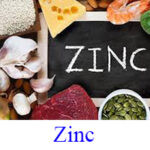
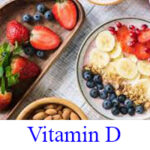
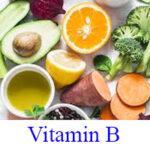
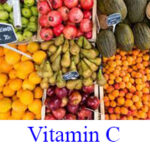
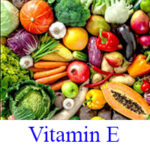
![]()
There have been times in our lives where we very totally sloshed and had the best night of our life. But it’s fun and games only till the night and in the morning the hangover hits you like a wrecking ball. Liquor is a diuretic which means once you drink, a lot of minerals and vitamins are lost. The vitamins lost in excess are vitamin C and vitamin B. The solution to this is taking a hangover vitamin pack or consuming vitamins on a daily basis so that whenever you drink you do not lose them and do not face a bad hangover after a day of heavy drinking. Not only will it prevent hangovers, but taking them every day will improve your overall well being. Following are the 5 best vitamins for hangover:
![]()
#1. ZINC
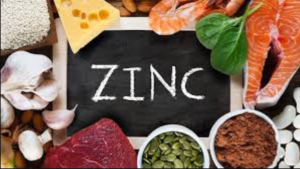
Zinc can be found in all the cells of our body. The main work of zinc in our body is to fight foreign bodies such as bad viruses and bacteria. Zinc is also one of the components that make up the DNA and proteins at cellular levels. It can be found in a lot of food and is available as a supplement. Now when it comes to hangovers zinc is quite essential to be present in your body as it converts ethanol into acetaldehyde. This is important because the higher the levels of zinc in your body the faster alcohol is metabolized.
If you want to include zinc in your meals so that your overall health improves and also your resistance to having a hangover also improves you should include zinc-rich foods. For example eggs, whole grains, nuts, dairy, seeds, legumes, shellfish and meat. If you think that you don’t know how to add them to the meal you can take supplements that are available in medical shops. But before doing that consult a doctor.
 #2. VITAMIN D
#2. VITAMIN D
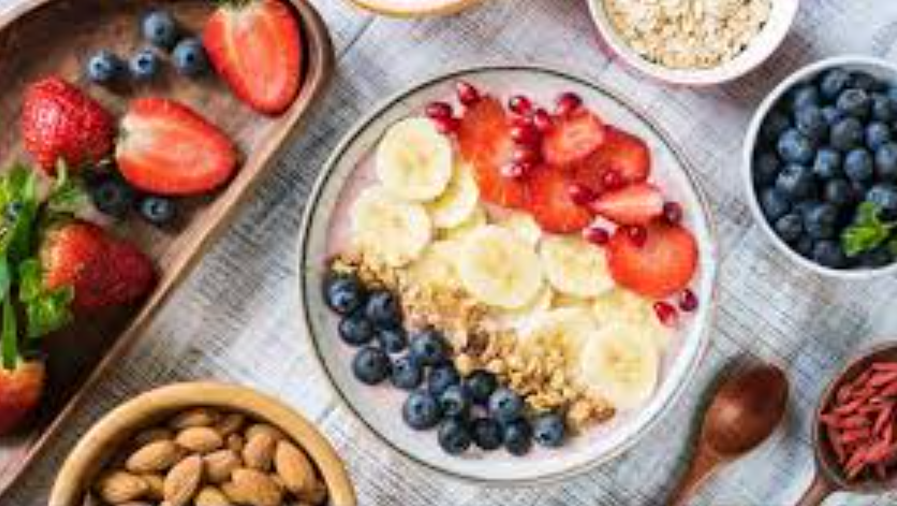
Sometimes it happens that you go to a party at night and then feel sick for quite a few days. We recommend supplementing vitamin D regularly or on an everyday basis so that you do not face such a problem. Consuming vitamin D every day is a very healthy habit. Having Vitamin D in your body is very essential as alcohol is a type of poison and when you consume it, it tends to weaken your immune system. If your body has a high level of Vitamin D then your immune system won’t get weakened to a great extent and you won’t be sick after a night of drinking. Sunlight is the best form of Vitamin D and it is suggested to sit in the sun for at least 10 mins in the morning so that your body can soak up the vitamin. The vitamin won’t directly fight your hangover but will help you get rid of the sick feeling so that you can wake up better.
 #3. VITAMIN B
#3. VITAMIN B
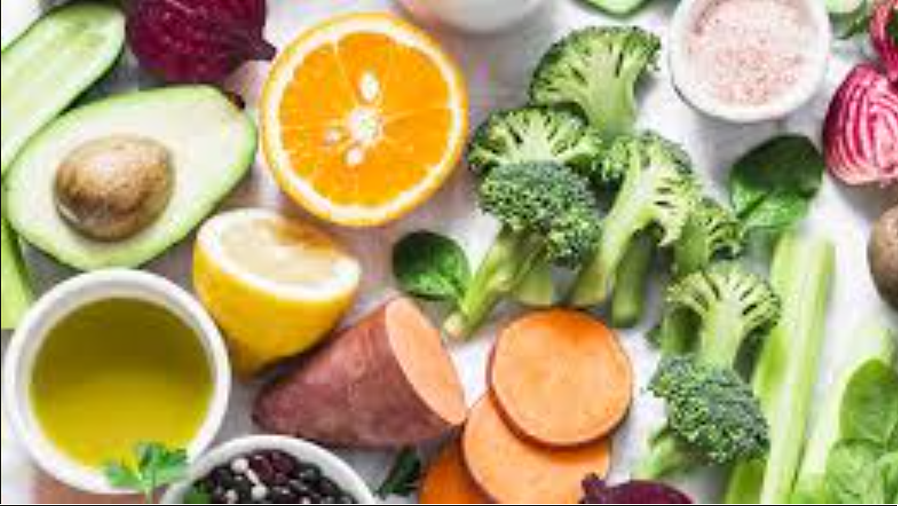
You may think as to how Vitamin B can help you in easing your hangovers. Well, there have been studies that made people drink alcohol once while consuming vitamin B and once without consuming vitamin B. The result was very clear. The supplements that were given to the people specifically contained vitamin b-6 and vitamin b-1. The participants of the study said that there was at least an 88% reduction in the symptoms of hangovers. The vitamin is obviously not going to cure the hangover as a whole as it can not deal with problems relating to your metabolism or dehydration. But when you overdrink, the requirement of vitamin B in your body goes up to a great extent.
As we know that Vitamin B is water-soluble hence it is flushed out from our body. When you are low on vitamin B your hangovers can grow more and more severe. The larger the amount of alcohol you consume the worse the situation gets. Hence you should consume foods rich in Vitamin B or take supplements every day.
 #4. VITAMIN C
#4. VITAMIN C

Vitamin C is known to help the immune system to function better. It also helps keep the free radicals in check as it is a very effective antioxidant, helps reduce inflammation and also helps in absorbing collagen. It does not particularly help with the hangover problem entirely but if the vitamin is present in good amounts in your body the hangover will be easy. Some studies have shown that it also helps in reducing liver inflammation caused due to drinking but more studies have to be done to get more assured.
The borderline is that you should consume the vitamin on a daily basis so that you do not lack it when you drink heavily. Even if it does not directly have an effect on your hangover it will surely make things easier for you. Rich sources of vitamin C are peppers, citrus fruits, broccoli, strawberries, mango, Brussel sprouts, kiwi and pineapple. If you do not wish to consume these then you can always go for the supplements that are available in the market.
 #5. VITAMIN E
#5. VITAMIN E

Vitamin E is known for being an antioxidant. The main function of the vitamin is to get rid of the free oxygen radicals or better known as reactive oxygen species from your body. The deficiency of this vitamin while drinking is quite harmful as there is nothing to neutralize the free radicals. Drinking alcohol increases the number of free radicals in your body and they have a negative impact on the cells of your body. At this time the presence of Vitamin E is very essential. For a high level of vitamin E in your body, consume food rich in it or have supplements, but include it in your daily routine.
CONCLUSION
Who doesn’t like a night where you can drink as much as you want and enjoy to the fullest? But what everyone does not want is the painful and irritating hangover that comes after that night. Now you know what vitamins to consume to avoid hangover situations. Consume them daily and enjoy your drinking nights and wake up with good memories and not a hangover.
Algal Oil & Magnesium
